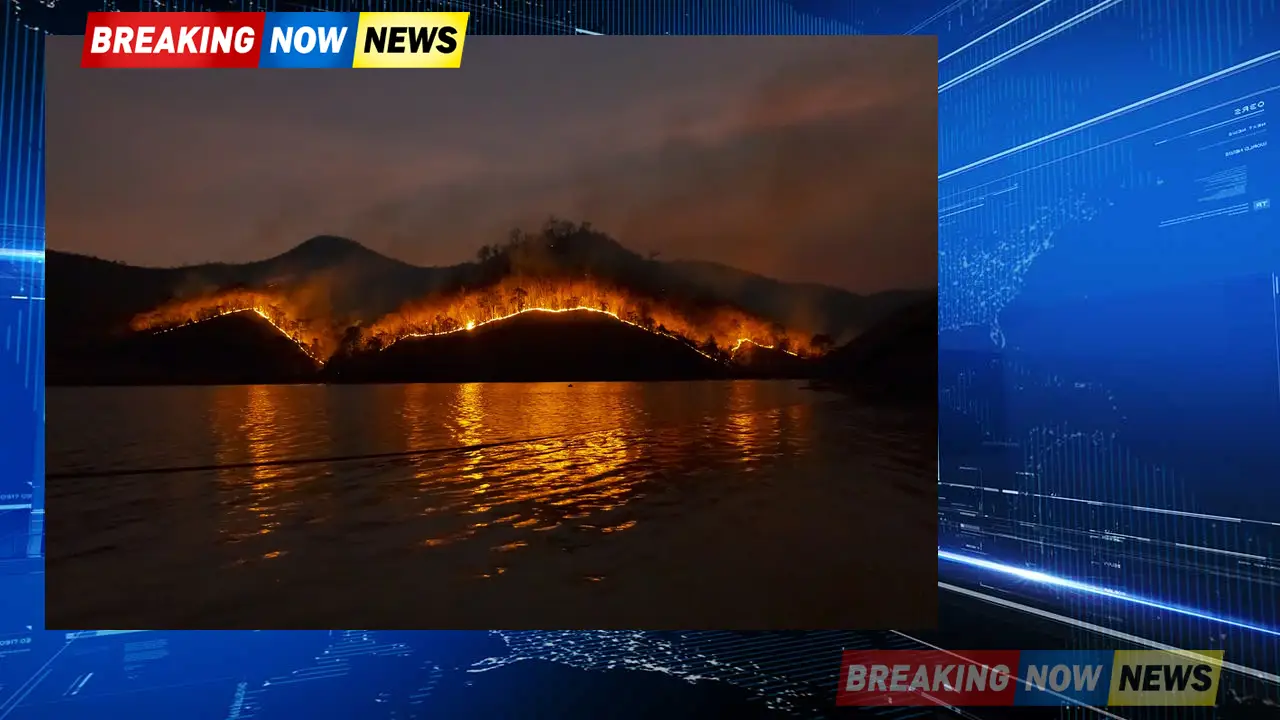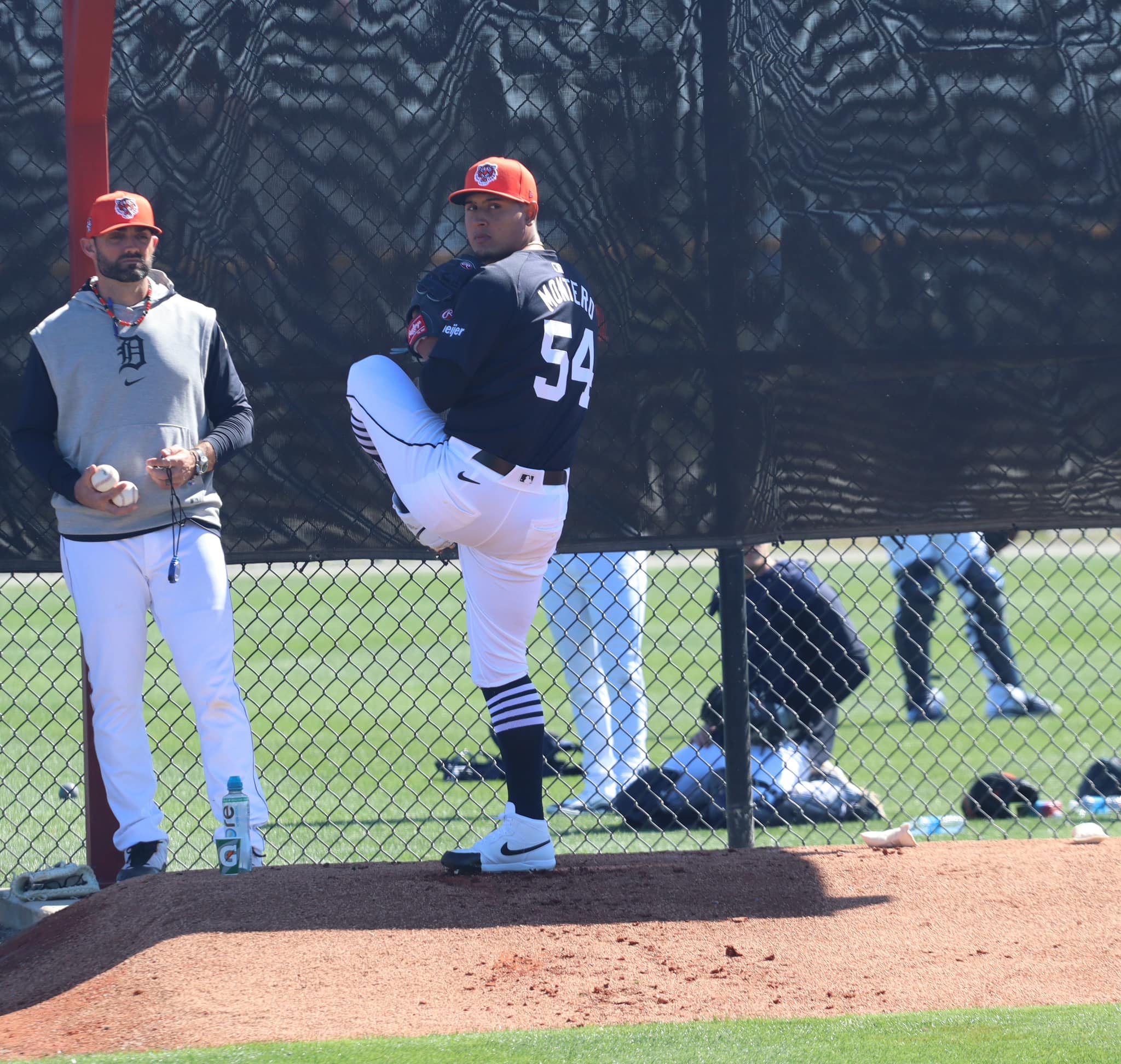Financialization Of Disaster: The Example Of Betting On The Los Angeles Wildfires

Table of Contents
The Mechanics of Wildfire Betting and Investment
The financialization of wildfires involves sophisticated financial instruments designed to transfer and manage risk. This process, while seemingly efficient, presents significant ethical and societal challenges.
Insurance Derivatives and Catastrophe Bonds
One key mechanism is the use of insurance derivatives and catastrophe bonds. These instruments allow insurance companies and reinsurers to transfer a portion of their wildfire risk to investors.
- Catastrophe bonds (CAT bonds): These are essentially bonds that pay out if a predefined catastrophe, like a major wildfire exceeding a certain damage threshold in Los Angeles, occurs. Investors receive a higher yield in exchange for accepting this risk. The payout is triggered by an independent assessment of the wildfire's impact. This is a common practice for managing earthquake, hurricane, and wildfire risk globally.
- Reinsurers: Companies that reinsure primary insurers play a crucial role. They purchase CAT bonds or other derivatives to offset their own wildfire-related liabilities. This complex web of risk transfer significantly influences how the financial market responds to the threat of Los Angeles wildfires.
Predictive Modeling and Data Analysis
Sophisticated data analysis and predictive modeling are integral to this process. Investors rely on these tools to assess the probability and potential severity of wildfires in Los Angeles.
- Data Sources: Companies use a variety of data, including historical fire data from the Los Angeles Fire Department, weather patterns from the National Weather Service, satellite imagery, and detailed maps showing building density and fuel loads (vegetation susceptible to burning).
- Algorithms: These data are fed into sophisticated algorithms that predict the likelihood and intensity of future wildfires, helping investors gauge the risk associated with wildfire-related financial products. This data-driven investing approach is influencing the market's perception of wildfire risk in Los Angeles and beyond.
Ethical and Societal Implications of Wildfire Speculation
The financialization of wildfires raises significant ethical and societal concerns.
Moral Hazard and Incentive Misalignment
Profiting from wildfires creates a moral hazard. This means that the existence of these financial instruments might disincentivize proactive wildfire prevention and mitigation efforts.
- Neglecting Prevention: If investors believe they can easily offset their losses through financial instruments, there's a risk that insufficient resources will be allocated to critical preventative measures, such as controlled burns, forest management, and improved building codes in high-risk areas of Los Angeles. This could lead to more devastating wildfires in the future.
Equity and Vulnerability
The financialization of disaster disproportionately affects vulnerable populations.
- Socioeconomic Disparities: Low-income communities and marginalized groups often lack the resources to adequately prepare for or recover from wildfires. They are less likely to have comprehensive insurance coverage and may struggle to access financial assistance. The financialization of wildfire risk exacerbates these existing inequalities.
- Environmental Justice: The impact of wildfires on vulnerable communities highlights critical issues of environmental justice. These communities often bear a disproportionate burden of environmental hazards, and the financialization of these hazards only worsens their situation.
Regulation and Oversight of Wildfire-Related Financial Instruments
The current regulatory landscape for wildfire-related financial products needs careful scrutiny.
Current Regulatory Frameworks
Existing regulations are often fragmented and may not adequately address the unique risks associated with the financialization of disasters.
- Regulatory Bodies: Various agencies, including state insurance departments and federal financial regulatory bodies, oversee different aspects of these instruments. However, a coordinated, comprehensive approach is lacking.
Potential for Regulatory Reform
Regulatory reform is crucial to mitigate the ethical and societal risks.
- Increased Transparency: Greater transparency in the pricing and trading of wildfire-related financial products is necessary.
- Stricter Risk Assessment: More robust risk assessment requirements should ensure that these instruments accurately reflect the potential impact of wildfires.
- Responsible Investing: Promoting responsible investment practices that consider the social and environmental consequences of wildfire speculation is essential.
Conclusion
The financialization of disaster, exemplified by betting on the Los Angeles wildfires, presents a complex challenge. It creates a system where profit is derived from devastation, potentially undermining efforts to mitigate wildfire risk and exacerbating social inequalities. The commodification of wildfires necessitates a critical examination of the current regulatory frameworks and a concerted push for regulatory reform. We must move towards preventing the financialization of disasters by prioritizing responsible investing, robust risk management, and ethical approaches to disaster finance. We urge readers to research the activities of relevant regulatory bodies, contact their elected officials to express concerns, and support organizations working to mitigate wildfire risks and promote environmental justice. Only through collective action can we hope to address this critical issue and build more resilient and equitable communities.

Featured Posts
-
 Brewers Defeat Tigers In Series Finale Keider Monteros Impact
Apr 23, 2025
Brewers Defeat Tigers In Series Finale Keider Monteros Impact
Apr 23, 2025 -
 Aleksandr Ovechkin I Pavel Pivovarov Sovmestnaya Kollektsiya Odezhda
Apr 23, 2025
Aleksandr Ovechkin I Pavel Pivovarov Sovmestnaya Kollektsiya Odezhda
Apr 23, 2025 -
 Victoria Contundente De Rayadas Gracias A Doblete De Burky
Apr 23, 2025
Victoria Contundente De Rayadas Gracias A Doblete De Burky
Apr 23, 2025 -
 Artfae Asear Alktakyt Alywm Alathnyn 14 Abryl 2025 Fy Msr
Apr 23, 2025
Artfae Asear Alktakyt Alywm Alathnyn 14 Abryl 2025 Fy Msr
Apr 23, 2025 -
 Ninth Inning Magic Diamondbacks Defeat Brewers With Walk Off Win
Apr 23, 2025
Ninth Inning Magic Diamondbacks Defeat Brewers With Walk Off Win
Apr 23, 2025
